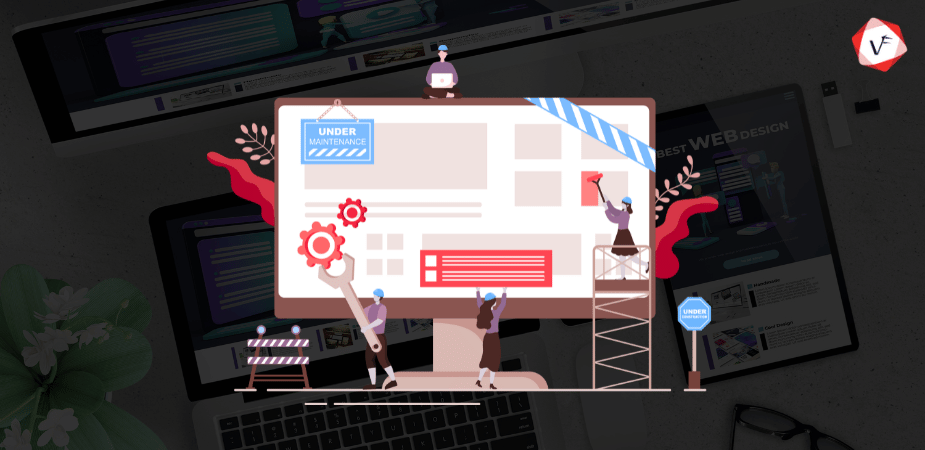Introduction
The world of cyber threats is always changing, making it challenging for enterprises to stay on top of the most recent challenges. Because of this, businesses need to create a solid plan for managing the external cyber threat landscape. Monitoring and evaluating the threat landscape on a frequent basis is a crucial part of any plan for managing the external cyber threat environment. This can be accomplished through various techniques, including registering to threat intelligence feeds, doing regular threat assessments, and keeping an eye out for potential threats on social networking sites and other internet platforms.
The term “cyber threat landscape” describes the dynamic nature of cyber threats, which can range from ransomware and phishing to malware and data breaches. These risks can originate from a range of sources. The fast pace of technological advancement is one of the primary problems in controlling the cyber threat scenario. As digital developments are put into use, security problems may arise that attackers may use.
The Role of Managed IT Services in Cyber Security
As businesses migrated to the cloud to reduce capital expenditure, support agile requirements, and accommodate remote workers, the attack surface quickly increased, providing new entry points for cybercriminals. It is not surprising that 82% of cybersecurity breaches result from human mistakes given the increase in remote connections between users and gadgets. Obviously, the best way to reduce cyber risk is to have a qualified security team.
An MSP comes in with the competence and understanding required to handle risk across the threat landscape, saving time and money compared to investing those resources in training busy internal employees. It is clearer that businesses need to prioritize securing their systems. Given that they only require one method of a system to breach a network in today’s cybersecurity environment, attackers have an advantage. On the other side, security experts must identify and address any security flaws that could expose their system to assault. Furthermore, it may only take a few seconds for a system to be compromised completely, underscoring the importance of ongoing security management.
Know more about the Benefits Of Cloud Managed IT Services
If you choose managed cyber security, you can access:
- Advanced security solutions which include Managed firewalls, anti-malware software, intrusion detection systems, online filtering, etc.
- SIEM (Security Information and Event Management) – SIEM keeps track of security-related events in your IT environment.
- Devoted security analysts – These experts locate significant weaknesses in your infrastructure and provide solutions to lower the risk of a security breach.
- Incident reaction and investigation – In the event of a breach, security experts assess the risk, evaluate the damage, and determine where the assault originated.
- Security training: This teaches your team about online fraud, secure password usage, and good security habits through hands-on activities and scenarios.
- Support for compliance – This consolidates your business procedures and security procedures with compliance frameworks.
Benefits of Managed IT Services in Cyber Security
Rapid Incident Response & Event Investigation
An MSP that can offer Incident Response and Event Investigation services will offer unmatched experience in handling enterprise security incidents. This prevents further harm to the organization, ranging from single-system compromises to enterprise-wide intrusions by advanced attack groups. An MSP’s Incident Response team will quickly assess the challenges you face and recommend specific actions using digital forensics and their experience of literally thousands of hours handling every possible crisis.
Assurance for Security Asset Management
Companies frequently spend money on brand-new IT security products just to put them on the back shelf, thereby underutilizing their capabilities. An MSP will provide your team with the technical know-how and expertise they need to handle and oversee these additional security assets, which is another advantage. A top-notch MSP will also adopt a comprehensive perspective of your security setup and be aware of the particular requirements for integrating security assets with current releases, configuration modifications, and security policy updates.
Monitor advanced threats
Small and mid-sized enterprise organizations must battle with cyberattacks that are more sophisticated and complicated than ever before, including advanced persistent threats, sophisticated malware (Trojans, viruses, etc ), and other nefarious activities. Using an MSP has the advantage of providing cutting-edge security solutions and the most recent advanced method for tracking and identifying these important, evolving threats. With the help of an MSP that offers Advanced Threat Protection (ATP), you can swiftly launch an active threat prevention strategy while reducing expenses and enhancing security.
Automate the Handling of Vulnerabilities
Continuous environmental security measures are a crucial component of an effective cybersecurity. Working with an MSP has the advantage of allowing you to receive precise internal and external checks across all of your IT network’s hosts, web apps, and databases. By using a planned distributed installation to minimize resource requirements, vulnerability detection scans by an MSP will decrease the overall price of IT management.
Additionally, with the implementation of these automated vulnerability scans by qualified specialists, the MSP may provide configuration changes, patches, risks, strengthening, and governance policies of IT assets, devices, and applications, with dashboard and insightful reports, to ensure your results are actually meaningful and free of wrongful convictions.
Handle risk and compliance appropriately
A highly accredited MSP will provide you the advantage of integrating its knowledge of risk management and compliance with your company and ensuring the safety of its resources. A hard scenario for your organization to succeed is created by the continuously developing security solutions combined with the continuously changing policy requirements. Having access to an MSP’s risk mitigation and compliance programs is a perk of using them.
Managed IT Services vs In-House IT: Which is Better for Cyber Security?
What are Managed IT Services?
A business that manages and monitors the organization’s networks and systems for security issues is known as an MSP. This can involve managing the firewall, a virtual private network (VPN) of the business, access control, anti-virus setting, and vulnerability assessment. MSPs offer businesses round-the-clock monitoring services, removing the need to engage and train a sizable security workforce.
Advantages of Managed IT services
Cost Effective: Although managed IT may appear costly, it could be less expensive than employing internally. When you engage in-house IT, you must cover various extra expenses in addition to the pay and perks of each full-time professional. In contrast, a managed IT package that gives you access to a whole team of professionals can be purchased for the cost of only one full-time internal IT employee. Although there are a few various pricing structures for managed IT, they are all less expensive than setting up an internal department.
Easier: It requires a great deal of effort and works to establish your own IT department. You must carry out detailed interviews and select the best candidates after taking the time to designate space for a new division in your workplace. After determining the appropriate tools, you must work with these new staff to buy and install them. The proper execution of the entire process can take days. It is a good idea to have a backup plan in place in case the backup fails. Your MSP is prepared to begin working after connecting your business to implement any new hardware and software.
Productive: The team that an MSP assigns to manage the cyber security of your business is typically divided into levels, which gives you the assurance that any issue, from simple improvements to serious problems like ransomware attacks, will be appropriately escalated to the appropriate people depending on its magnitude.
Secure: Collaborating with outside businesses is practically necessary when it comes to cyber security. Some businesses may find it unpleasant to consider handing over their data security to a third party, but in fact, an MSP uses a number of strategies to protect your data. Your cyber security is always prioritized by an MSP. To prevent cyber threats from coming, they keep up with ever-shifting technologies and modify your network properly.
Disadvantages of Managed IT Services
- Entrusting your security concerns to a third-party vendor also involves giving up a lot of direct authority. Outsourcing could be a challenge for companies that would rather keep total control of security. MSPs must compromise in order to gain scale and reduce the cost of managed IT services for enterprises. This is a problem for most businesses. An outsourced MSP might not be as familiar with your company as you and your crew are.
- The managed IT service staff is less accessible to address urgent concerns because they are not physically present in the office. Also, if the MSP does not have a regional branch, they are unable to provide on-site help. Make sure your MSP offers on-site services and is accessible by phone for immediate assistance in order to mitigate this drawback. Read, Tips To Build A Productive IT Outsourcing Strategy
Read, Tips To Build A Productive IT Outsourcing Strategy
What are In House IT services?
When something is done “in-house,” it means that it is done by the company itself rather than being outsourced. The company conducts business activities using its own staff and resources. Contrary to outsourcing, which is engaging outside help to carry out those tasks, frequently through another company, this is not the case in-house.
Advantages of In-House IT services
Operational Management: Given that you are filling positions internally, the firm can simply manage its personnel and maintain control over processes. Outsourcing, on the other hand, decreases team control because it takes more time for the consultant to comprehend the topic, the company, and how the team operates.
Workflow Stability: The onboarding and awareness processes can make recruiting from outside the company take a long time. Since the internal employee is already accustomed to the organizational culture and is familiar with the background of the company, it is easily done.
Disadvantages In-House IT services
Talent: In order to have skilled and competent staff, ongoing training and periodic financial investments are required. When an individual quits the organization, there may be a gap. The business must complete the hiring and training procedures while trying to fill the position.
High Prices: In comparison to outsourcing, assigning operational responsibilities internally can get fairly expensive. The reason is that the company will need to prepare the workspace for more employee positions and/or invest in additional workplaces due to prospective team expansions. However, greater incomes that result from in-housing immediately correlate to higher costs overall.
Process flow delays: Sometimes implementing workflow, training, and delivery takes longer when hiring internally. So there is a chance for a slowdown in process flows.
Read the Differences between Managed Services & IT Staff Augmentation
Final Thoughts
The infrastructure of the company and the factors that influence its efficiency must be carefully considered when comparing Managed IT Services versus an internal IT solution. A managed security service provider has a team of experts on board that are knowledgeable about a variety of security concerns and can be trusted to find a rapid solution.
No matter who you choose to collaborate with, ensure that you have sufficient time to make sure the agreed-upon service level agreements are adequate for your purposes and that you can rely on the supplier with your sensitive data to it. It might be challenging to choose the approach that will work best for your business, but when it comes to IT Assistance, it is obvious that there is no one size fits all approach. Both approaches may not be ideal for many firms. Others choose a hybrid approach that combines the outsourcing elements with an internal team as a result of this. Finding the ideal partner to outsource IT to who comprehends your business and requirements is the most crucial step.
If you are looking for a reliable partner to handle your managed IT service needs, then look no further than Vofox Solutions. With a proven track record of providing top-notch IT services to businesses of all sizes, Vofox can help you optimize your IT infrastructure, reduce downtime, and boost productivity. Our team of experienced professionals is dedicated to delivering customized solutions that meet the unique needs of your business. With Vofox, you can focus on growing your business while we take care of your IT needs. So, why wait? Contact us today to learn more about how we can help you achieve your business goals.





